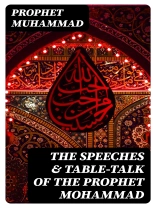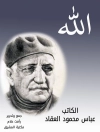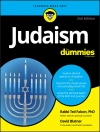The Speeches & Table-Talk of the Prophet Muhammad presents a unique compilation of the Prophet’s sayings and conversations, embodying the essence of Islamic teachings through profound wisdom and practical guidance. This work, characterized by its conversational tone and accessible prose, provides a glimpse into the daily life and moral principles of the Prophet, encompassing themes of compassion, justice, and community cohesion. The literary style reflects the oral traditions of the time, with authentic anecdotes that enliven the reader’s understanding of the socio-religious landscape of 7th-century Arabia. Prophet Muhammad, the founder of Islam, is revered not only for his prophethood but also for his remarkable ability to articulate deep spiritual and ethical truths through simple dialogue. His life experiences—marked by adversity, diplomacy, and devotion—shaped his teachings, making them indispensable to the moral compass of millions today. The collection is a sincere reflection of his commitment to fostering understanding, tolerance, and mutual respect among diverse communities. This profound collection is recommended for anyone seeking to deepen their understanding of Islamic teachings and the relevance of the Prophet’s messages in contemporary society. The Speeches & Table-Talk serves as a timeless guide to ethical living, inviting readers to embrace its principles in their daily lives.
Tentang Penulis
Prophet Muhammad (570-632 CE), the founder of Islam, is revered by Muslims around the world as the last messenger and prophet of God. In the tradition of Islam, however, Prophet Muhammad is not considered an ‘author’ in the conventional sense as his revelations, which comprise the Quran, were verbal and not penned by his own hand. They were transcribed by his companions into what is now known as the Quran, the central religious text of Islam. The book ‘The Speeches & Table-Talk of the Prophet Mohammad’ captures some of his sayings and actions, which, alongside the Quran, form the Hadith literature. This body of work records the Sunnah, the prophetic traditions which serve as a guide to the exemplary character and life of the Prophet. Muhammad’s impact on literature is reflected in the vast corpus of Islamic theology, jurisprudence, and historical biography, which developed from his teachings and the profound influence he had on Muslim civilization and thought. His messages, embedded within the Hadith, illuminate his wisdom across various aspects of life and have been subject to extensive analysis and commentary by Islamic scholars. Despite the scholarly examination of these texts, Muhammad himself as an ‘author’ presents a unique perspective as his communications are believed to be divine transmissions rather than literary compositions of human origin.












